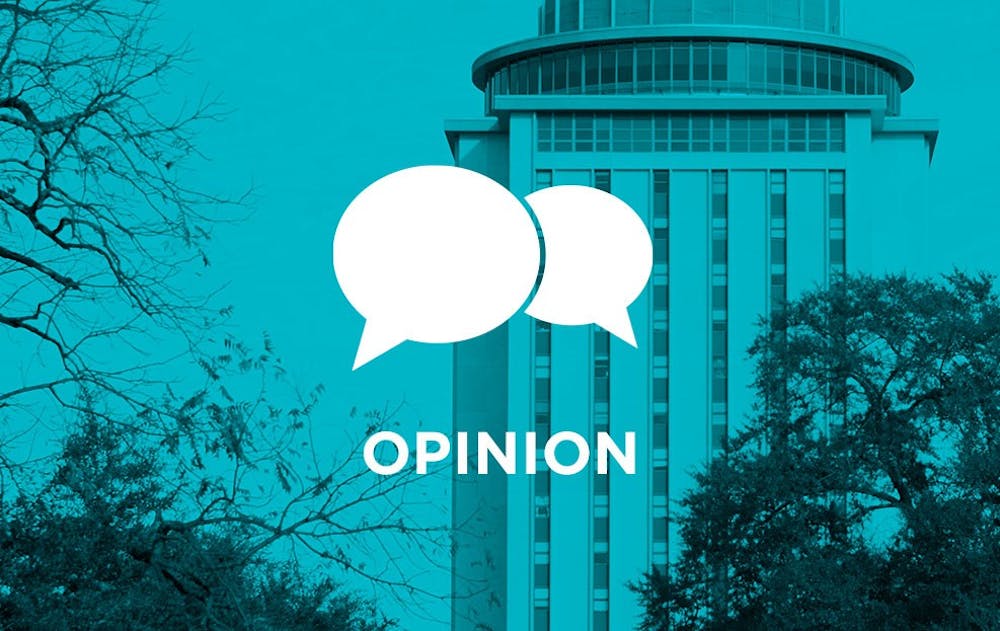Hillary Clinton has a lot of assets in her corner in the run for the presidency.
She’s rich. She’s white. She’s been well-educated at Yale and Wellesley. She has a background in politics dating back to her time as Arkansas’ first lady in the late seventies and eighties, and has been a respected public speaker, U.S. senator, presidential candidate and secretary of state. She is part of a major political party with much of its support thrown behind her.
Despite her many advantages, however, she cannot escape sexism any more than any woman can escape it, particularly any woman in the public eye.
This is particularly well outlined by her opponent in the presidential race.
Donald Trump has loudly, repeatedly and publicly claimed that all Clinton has going for her is the “woman’s card.” There are, obviously, some problems with this.
First, despite the shadows cast over her accomplishments by her various scandals, it’s pointless to try to pretend she’s never achieved anything of note. Her political career itself is notable — whether or not you like what she’s done, it’s hard to argue that she’s never done anything.
Second, if the “woman’s card” was some kind of ace up the sleeve of female politicians, there would probably be more than 25 percent of us in state-level executive positions and legislatures and more than 20 percent of us in Congress. If Hillary could magically make all women vote for her simply because she’s a woman, she probably would have gotten that 80 percent of women under thirty who went for Bernie in the primary.
So Trump’s statement that “all she has is the woman’s card” has about the same lofty level of logic and fact that his famous campaign to disprove Obama’s citizenship did.
As the president would say, let me be clear: This is not to say that everyone hates Hillary Clinton because she’s a woman. People hate Hillary Clinton because she’s untrustworthy and hypocritical. To claim that disliking Hillary is always sexist is ridiculous. But she is probably the most prominent woman in U.S. politics at the moment, and that makes her a good character study about the more personal aspects of sexism in politics.
There is, of course, the obvious — both Trump supporters and former Sanders supporters use gendered slurs when referring to Hillary that no one would ever consider using on male politicians. Then there’s the slightly more subtle public commentary — Hillary’s shrill because she yells. She’s icy because she doesn’t often get personal with voters. She’s too desperate. She’s too domineering. She’s too calculating.
Not to say that these things aren’t true, because frequently, they are, but it does beg the question of when we’re going to start calling Trump shrill, since he’s not that good at using his inside voice. Or why we never called Mitt Romney, who was often skewered for failing to act like a real person, “icy.” When Hillary yells, she’s too passionate — when she talks, she’s not passionate enough. When she goes after the presidency hard she’s desperate, not ambitious. She’s “domineering” instead of “firm” or “dominant.” She’s calculating, and that’s a flaw, despite the fact that calculation is actually pretty important in a presidential race, as we saw in the debate.
I don’t remember the last time a male politician was called “shrill.” And although the Donald has had the word “domineering” applied to him following the debate, it has mostly been used to refer to his treatment of her or his attitude towards the debate, rather than to his person. Words like that actually sound odd when applied to a man. We think traits that make male politicians look powerful make her look power- hungry.
It was genuinely jarring on Sept. 26 to watch her smile while Trump repeatedly interrupted her — knowing that if she were the interrupter, we’d have eviscerated her for being pushy.
At this point, some people are probably thinking that I’m grasping at straws, or that I’m whining about something I can’t prove. While it’s true that I can’t repeat the debate with the roles reversed and see how people react, I do have evidence that this is a real problem that women face, and there’s no reason to believe it would not apply to Clinton.
The Harvard Business Review interviewed men and women at management levels in top companies and found that women did not feel confident they were being paid attention to and men felt that women allowed themselves to be interrupted. And they weren’t wrong — a study published in the Journal of Language and Social Psychology found that both women and men were more likely to interrupt women than men. It’s reinforced by several other studies.
It’s not our fault that we have this bias, and it’s certainly not our fault that it’s being exacerbated by the way she’s described in newspapers, opinion pieces and treated in interviews. But the next time Hillary’s unpresidential look is brought up, or somebody comments on her fashion sense, or she gets cut off mid-sentence by someone she’s talking to, question how we’d feel about it if she made turnabout fair play. Would we call her catty? Or bossy? The next time Trump curses casually onstage, take a moment to wonder if you’d think she was unladylike if she did the same.
As a woman in politics, she’s walking a thin line. Our already low standards for Trump are making that extremely apparent when we compare them. Could a woman who once called men “pieces of a--” become the nominee of her party? Could a woman who bragged about her extramarital affairs and talked about her vagina onstage at a debate get this close to the highest office in the country?
Clinton has been overcoming sexism all her life, and the double standards won’t go away this election cycle. But we can at least be critical of them as well as critical of her.

